June 25, 2025 | 16:17 GMT +7
June 25, 2025 | 16:17 GMT +7
Hotline: 0913.378.918
June 25, 2025 | 16:17 GMT +7
Hotline: 0913.378.918
The agricultural sector of Thai Nguyen Province has recently partnered with local authorities to assist enterprises, cooperatives, and individuals in the construction of databases and the registration of plantation codes in order to implement digital transformation. Coding plantations offers farmers a variety of practical advantages, including the ability to standardize crop care and management, supervise planting areas, provide disease alerts, plan crop care, report permitted pesticide listings, and estimate yields.
Consequently, crops can produce improved, consistent quality that satisfies the requirements of even the most stringent markets. This is also a requirement for the export of agricultural products through official channels.
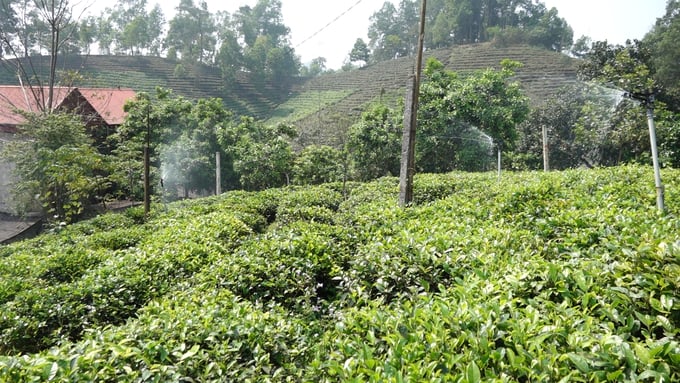
Khe Coc Safe Tea Cooperative has more than 40 hectares of tea certified with production unit codes. Photo: Quang Linh.
The production unit code (PUC) is a "passport" that enables Khe Coc tea to access international markets, as Mr. To Van Khiem, Director of the Khe Coc Safe Tea Cooperative (Phu Luong District, Thai Nguyen), has emphasized. The cooperative is one of the few entities that routinely exports tea to the European market. Currently, the Khe Coc Safe Tea Cooperative has 40 hectares of tea with PUC of which 20 hectares are certified organic. The remaining 20 hectares are anticipated to receive certification by early 2025. Mr. Khiem is particularly dedicated to the management and monitoring of these plantations, as a significant portion of the land is under certified codes.
"The PUC facilitates customs clearance and aids in the acceptance of Thai Nguyen tea products in other countries." However, penalties, market loss, and blacklisting may result from regulatory violations, deception, or a lack of transparency, as Mr. Khiêm elaborated.
The director of Khe Coc Safe Tea Cooperative confirmed that the plantation code ensures transparency in the production output. "Importers utilize this as a benchmark for our production capacity and the volume we can supply, as 40 hectares are covered by plantation codes." We are unable to report yields that exceed the achievable level for the 40 hectares with certified codes.
Currently, Thai Nguyen Province has 51 plantation codes, 26 of which are for tea. The Provincial Crop Production and Plant Protection Department adheres to the guidelines and regulations of the Ministry of Agriculture and Rural Development in its annual monitoring of plantation codes.
Digital applications have reduced the distance between regulatory bodies and plantations, thereby facilitating more precise and detailed communication of information and regulations related to plantation codes, rather than necessitating direct visits to sites for outreach and guidance. A digital application is used to update the data on plantation codes, which includes specific information about the area managed by participating households and location details on a map. Production units are now able to register for codes through the Crop Production Database at [https://csdltrongtrot.mard.gov.vn](https://csdltrongtrot.mard.gov.vn).
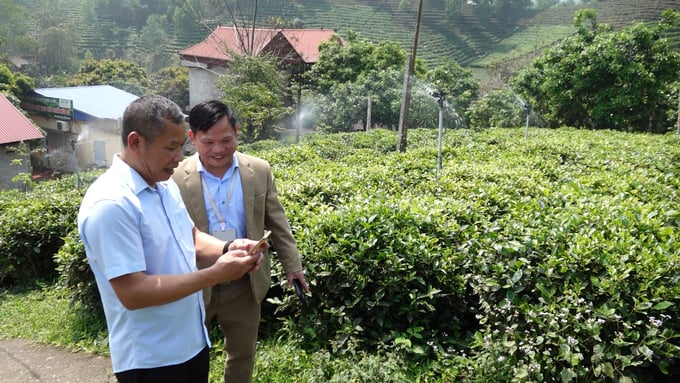
Digital communication applications have significantly reduced the gap between regulatory bodies and local facilities. Photo: Quang Linh.
The Thai Nguyen Crop Production and Plant Protection Department intends to continue the development of a database for their profession by promoting the transition of producers from traditional logging to electronic record-keeping in the future.
The implementation of digital field records, such as Fardiary and plantation codes, has facilitated the task of monitoring and conducting routine inspections for authorities.
Mr. Nguyen Ta, the head of the Thai Nguyen Crop Production and Plant Protection Department, underscored the necessity of having high-quality human resources, including both staff and farmers, in order to further accelerate digital transformation in the crop production and plant protection sectors.
"Our computers are antiquated, with processing capabilities that are inadequate and usage lifespans that range from five to ten years." This impacts the pace of data processing as a result of the sluggish operation and full storage. Consequently, it is imperative that we provide specialized computers to the personnel who are responsible for administrative procedures and digital transformation. "It is also essential to enhance cybersecurity in order to prevent malware infections," Mr. Nguyen Ta recommended.
Translated by Linh Linh
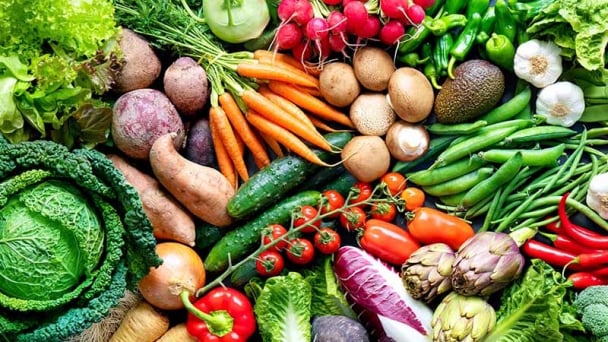
(VAN) The national action plan for food system transformation needs to align with the decentralization requirements under Vietnam's upcoming two-tier government model.
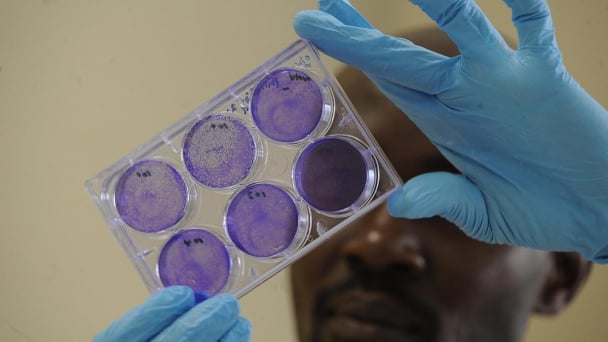
(VAN) The Food and Agriculture Organization’s Strategic Framework and its Science and Innovation Strategy make a simple case: solving systemic problems requires systemic solutions.
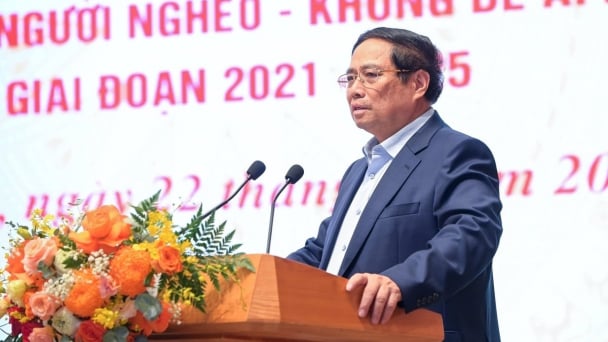
(VAN) Vietnam's national goal programs have effectively mobilized the combined strength of agriculture, farmers, and rural areas, thereby enhancing the material and spiritual well-being of the Vietnamese populace.

(VAN) The waste of resources from agricultural by-products and the situation of counterfeit and poor quality goods in production causing losses of thousands of billions were pointed out by the National Assembly deputy.

(VAN) After 5 years of implementation, the CAI initiative has helped coffee growers change their farming practices, moving toward responsible agriculture that meets global export standards.

(VAN) The primary prerequisite for the comprehensive and robust integration of Vietnam's livestock sector into the global value chain is the establishment of a disease control system.

(VAN) The results of national programs are essential for establishing a contemporary livestock sector that is well-equipped to meet the demands of both domestic and international markets, with robust biosafety standards.